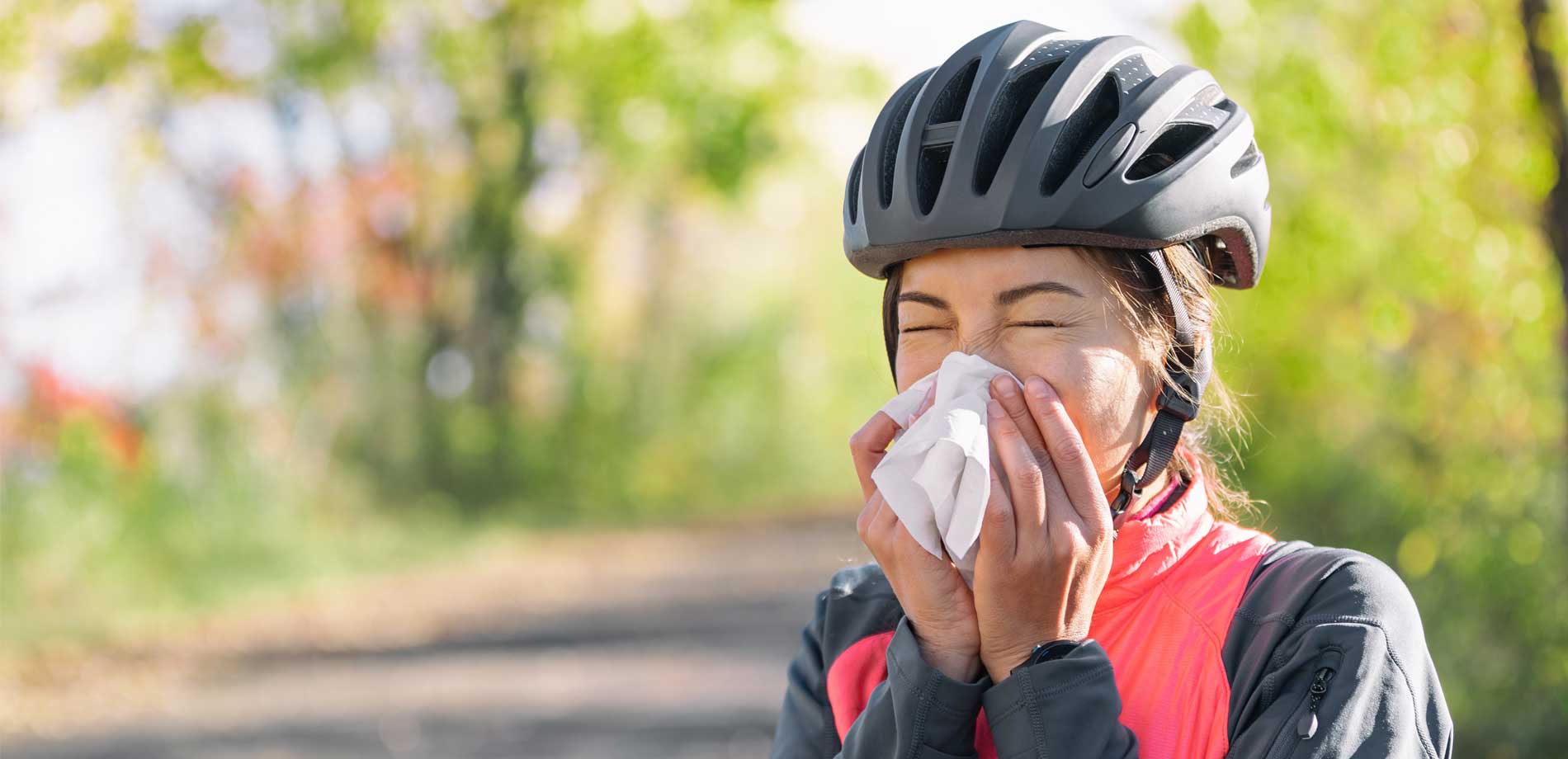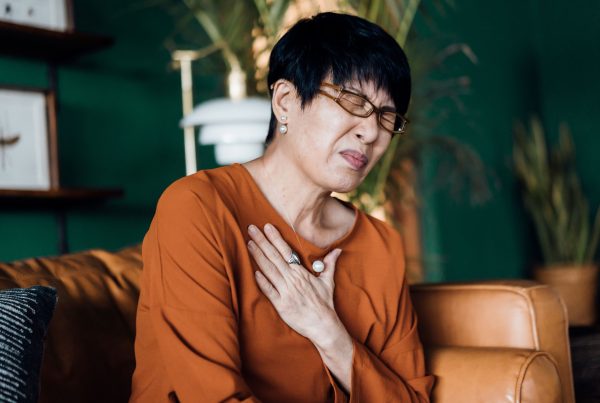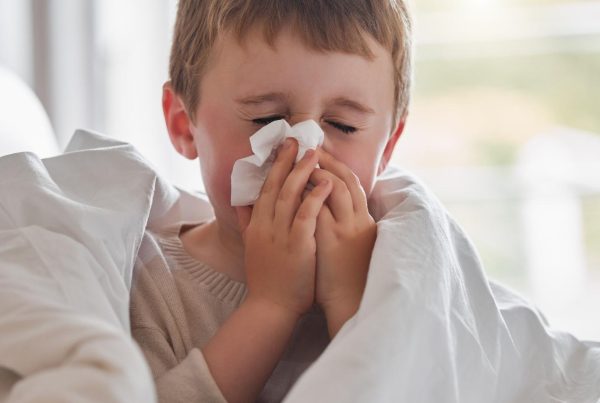Stuffy nose. Headache. Watery eyes. Sneezing. General blahs. Sound familiar?
With the warmer weather, you may be experiencing seasonal sniffles. Two common culprits? Tree and grass pollen.
“In the Cleveland area, tree pollen appears in early spring, while grass pollen season begins in late spring,” says Kholoud Wishah, MD, a pediatric allergist and immunologist at MetroHealth.
What Are Allergies?
Allergies occur when your immune system reacts to a foreign substance, such as pollen, ragweed, trees, grass, pet dander, etc. The results are symptoms that wreak havoc, affecting your airways, sinuses and nasal passages, skin, and digestive system. These sniffy, sneezing, snot-nosed symptoms can range from mild to severe.
Allergy symptoms
- An itchy, stuffy or runny nose
- Itchy, watery eyes
- Sneezing
- Coughing
- Hives, especially when exposed to freshly cut grass
- Eczema or red patches of skin that flare up and itch
Allergy Treatments
While most allergies can’t be cured, you can relieve your allergy symptoms—oftentimes with over-the-counter (OTC) medicines. Bonus: You can get many OTC medicines at a discounted price at a MetroHealth Pharmacy.
If allergies or sinuses are interfering with your daily life, visit one of our many MetroHealth pharmacy locations and talk a pharmacist about the best option for your symptoms. Allergy medications are available as pills, liquids, inhalers, nasal sprays, eyedrops, and skin creams.
Before you make an appointment with your pediatrician or an allergist, Dr. Wishah has some simple strategies for preventing and relieving seasonal allergy symptoms.
Avoid Pollen
Avoidance measures can be an effective way to prevent allergy symptoms.
- Check the pollen counts on your local TV news or on websites such as pollen.com. “On high pollen count days, let your kids play inside,” says Dr. Wishah.
- Close the windows and run your air conditioner.
- Invest in a HEPA (high-efficiency particulate air) filter to reduce pollen levels in your house. If you already have one, check if it needs to be replaced.
- Regularly wash the family dog.
- Shower and wash clothes after being outdoors.
When to See a Doctor
If over-the-counter remedies and avoiding pollen don’t work, talk to your pediatrician or an allergist/immunologist.
Doctors may prescribe antihistamine nose sprays, which more precisely target nasal symptoms. Antihistamine eye drops are also available by prescription to relieve itchy, watery eyes.
If these medications fail, doctors may recommend allergy shots to desensitize your body to pollen or other allergens.
The most common types of OTC allergy medications are:
- Antihistamines: Claritin®, Zyrtec®, and Allegra®, which tend to be non-drowsy. Benadryl®. They can make you drowsy, so you need to be careful when you take them.
- Intranasal saline sprays: These can help loosen mucus in the nose and can rinse out pollen, relieving nasal symptoms. Many store brand options are available.
- Nasal steroids: These include Flonase® (fluticasone propionate). They reduce inflammation and can help relieve a stuffy nose.
- Decongestants: Provide quick, temporary relief of nasal and sinus congestion. They can cause trouble sleeping, headaches, increased blood pressure, and irritability.
A MetroHealth pharmacist can help you figure out what you need based on your symptoms.
The Allergy and Immunology Clinic is staffed with experts who can help determine what is triggering your allergies and provide additional treatment options.
Call 216-778-2213 to schedule an appointment.
Referrals are not required.












